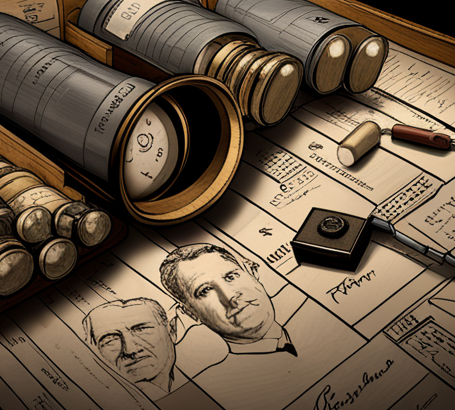
Table of Contents
Understanding the Difference Between Genealogy and Family History
Genealogy and family history are often used interchangeably, but they encompass distinct aspects of tracing your roots. Genealogy is the framework—the dates, names, and relationships that form your family structure. In contrast, family history adds narratives, stories, and social context, breathing life into the skeleton of your genealogical tree. It’s the difference between knowing your great-grandfather’s birth date and understanding how he lived, his challenges, and how these experiences have influenced your family today.
Starting genealogical research is relatively simple but requires patience and meticulous record-keeping. Begin with what you know—start with your parents and grandparents, and go as far back as your current knowledge allows. Conversations with living relatives can yield invaluable information, personal anecdotes, and possibly even family and photographs. Recording this information meticulously provides a solid foundation for building your family tree.
 Staying Organized
Staying Organized
Organizing your research from the start is essential. Record information by family line or record type using notebooks, digital folders, or specialized genealogy software. This structured approach will help you manage the wealth of data you will gather over time.
Reaching Out to Relatives
Engage with relatives, including distant family members, to gather personal stories and uncover familial links that official documents might not reveal. These narratives add depth to your family history and can lead to significant discoveries.
 Leveraging DNA Testing
Leveraging DNA Testing
Recent advancements in DNA testing provide genealogists with another way to organize their research, which is essential. Record information by family line or record type using notebooks, digital folders, or specialized genealogy software tools for tracing lineage. By submitting a simple saliva sample, you can uncover genetic links and match them with relatives you never knew existed. The science behind this technology is continually building you, offering more precise results and deeper historical insights.
 Tips for Effective Genealogical Research
Tips for Effective Genealogical Research
- DETAILS MATTER: Cross-referencing records is crucial for maintaining the integrity of your research. Pay attention to spellings, dates, and places, and corroborate information with additional sources when in doubt.
- CHOOSING RELIABLE RESOURCES: Not all genealogy websites are created equal. Stick to those with solid reputations for accuracy and a wealth of resources, such as Ancestry.com, FamilySearch.org, and MyHeritage.com.
- UTILIZE TECHNOLOGY: Modern genealogy software and digital tools can simplify the organization and analysis of your research.
- Contact Experts: Don’t hesitate to contact professional genealogists for guidance and assistance.
 Resources:
Resources:
If you’re starting your genealogy research, the web has many resources to help you uncover your family history. Here are three fantastic sites that are perfect for beginners:
1. Ancestry: With its extensive database and user-friendly interface, Ancestry is a top choice for genealogists. It offers a plethora of records, including census data, birth and death certificates, and immigration records. While full access requires a subscription, you can start with a free trial to explore its offerings.
2. FamilySearch: Managed by the Church of Jesus Christ of Latter-day Saints, FamilySearch provides free access to one of the world’s largest collections of genealogical and historical records. Its intuitive design makes it easy to search and organize your family tree, making it an excellent resource for those new to genealogy.
3. MyHeritage: Another user-friendly platform, MyHeritage offers a robust database focusing on international records. It also includes unique features like DNA testing and photo enhancement tools. MyHeritage offers a free basic plan, with options to upgrade for additional features.
These platforms provide reliable information and are designed to make your genealogical research as smooth and enjoyable as possible. Happy ancestor hunting!
Conclusion:
Applying These strategies will streamline your genealogical exploration and craft a robust and meaningful family narrative. The key is to remain curious, meticulous, and patient. Now, with these tips in hand, explore your research. You may encounter roadblocks or ‘brick strategies to streamline, explore, and craft a robust and meaningful family narrative. The key is to remain curious, meticulous, and patient. Now, with these tips in hand, you can explore your research. You may encounter roadblocks or ‘brick walls,’ but your strategies will further explore and document your family tree.

